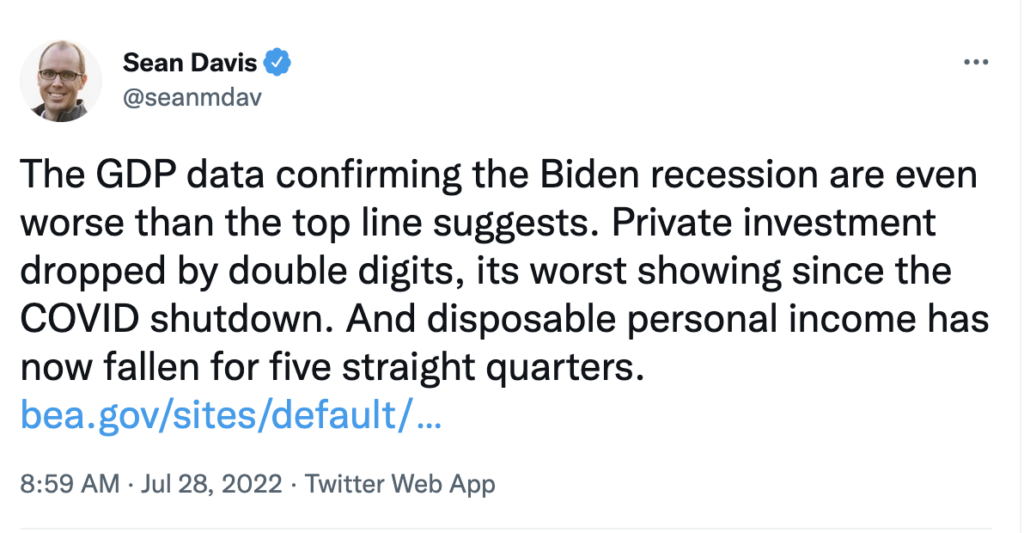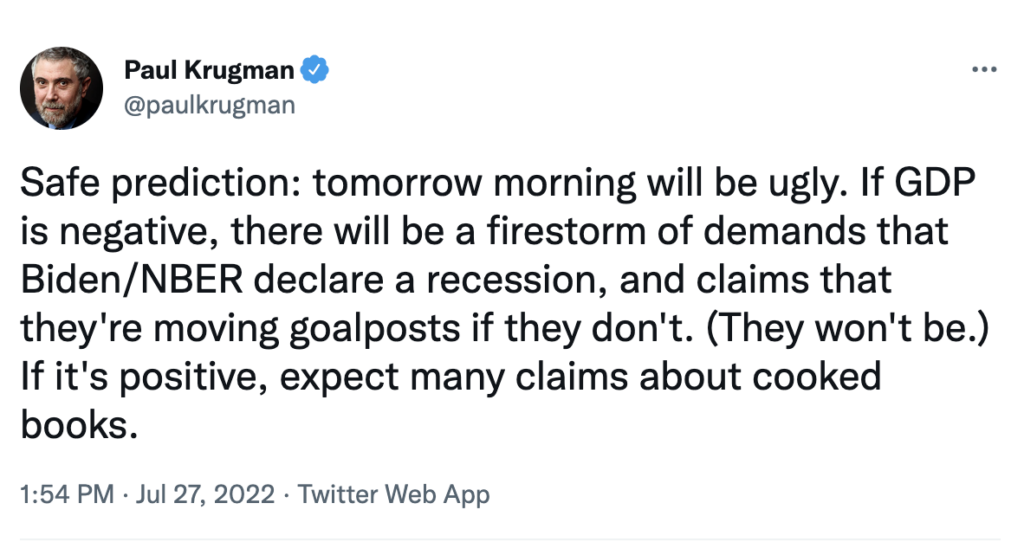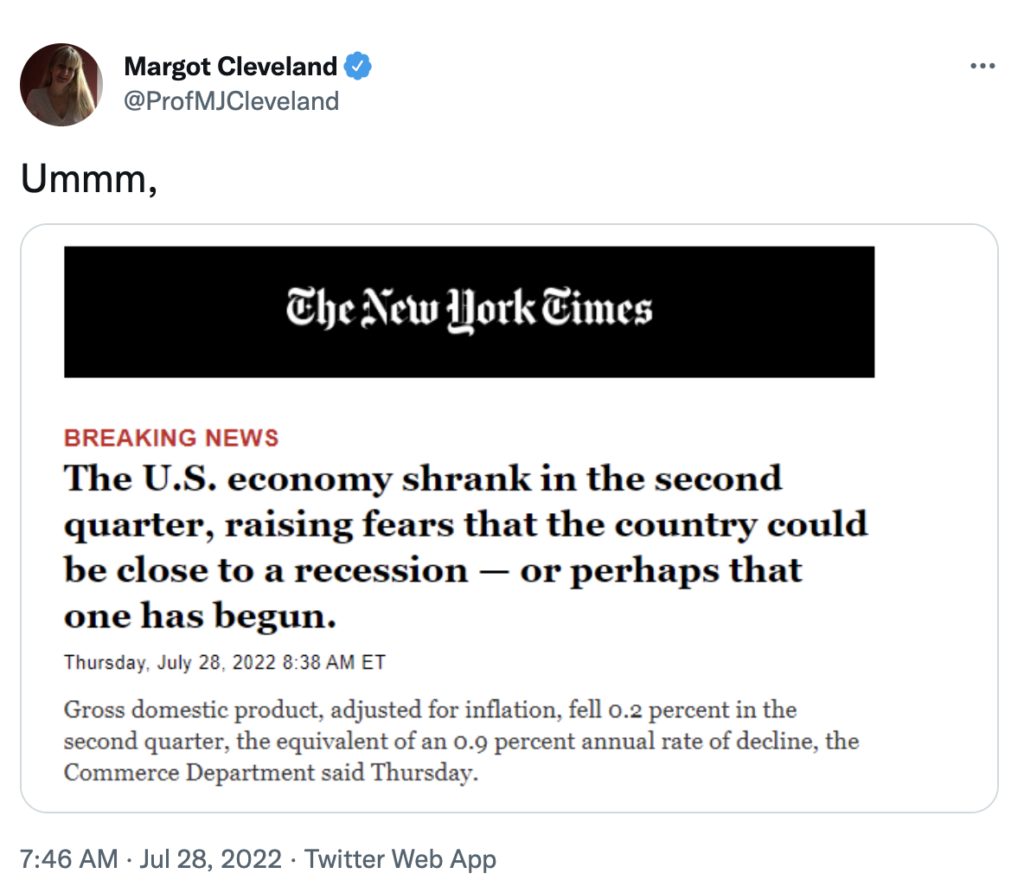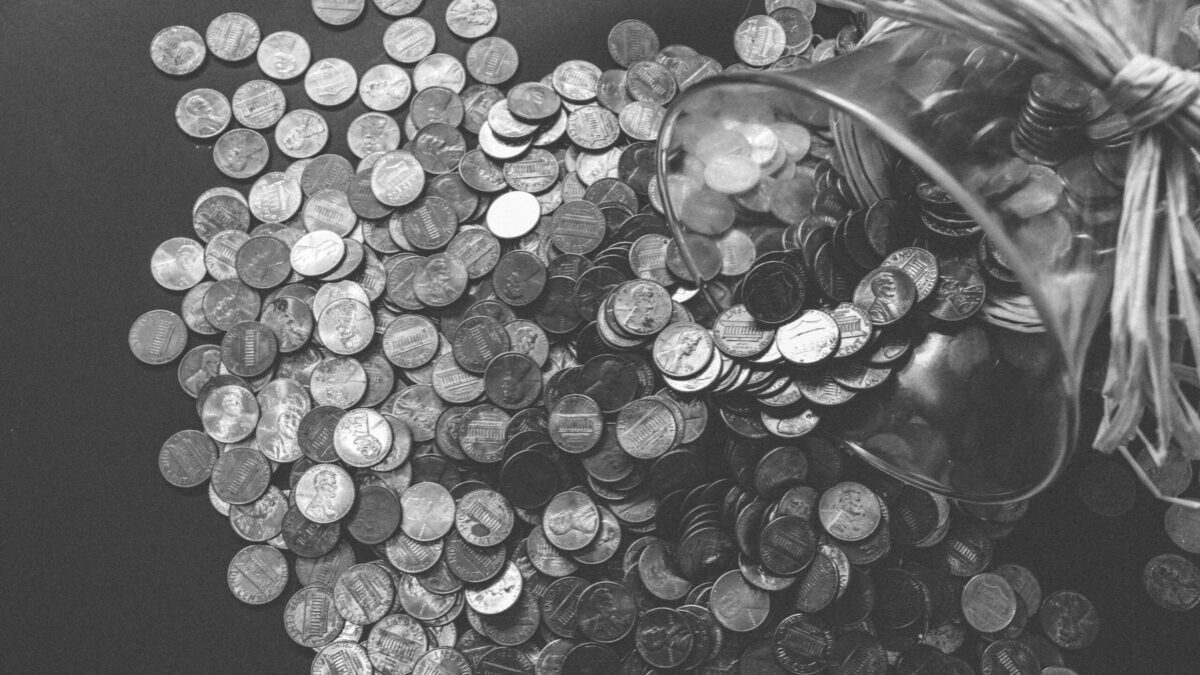No matter how much the White House or its cronies in the corrupt corporate media try to cover up the nation’s economic crises, the U.S. economy is in fact in a recession.
Not only did gross domestic product drop by 0.9 percent in the second quarter of 2022, but inflation reached yet another record high, which severely damaged Americans’ purchasing power. As a result, the U.S. Bureau of Economic Analysis reported decreases in “private inventory investment, residential fixed investment, federal government spending, state and local government spending, and nonresidential fixed investment.”

Real GDP for April through June may look better than the 1.6 percent decrease recorded in the first quarter of 2022, but by all previously held definitions, back-to-back negative quarters signal that the nation is in a recession.
That’s a strong contrast to what the Biden administration — which is in many ways responsible for the nation’s economic state thanks to excessive government spending and the belief that it could “run up national debt without consequence” — preemptively claimed about the current state of the U.S. economy.
“What is a recession? While some maintain that two consecutive quarters of falling real GDP constitute a recession, that is neither the official definition nor the way economists evaluate the state of the business cycle,” the White House Council of Economic Advisers declared ahead of the poor news.
Now that the White House has repeatedly and dishonestly denied any problems with the American economy, the corporate media have taken their cue to downplay, memory hole, and tail-tuck their way through the news cycle for the next few days.
Reuters framed the recession news as a “moderate rebound” while economists at the Wall Street Journal claimed the U.S. is in a “sentiment recession,” not an “actual recession.”
Outlets such as the New York Times, whose opinion columnist Paul Krugman insisted earlier this week that the U.S. isn’t on the brink of recession, conceded that “the country could be close” to a period of economic decline.
“Since it has already announced that real G.D.P. shrank in the first quarter, there will be a lot of breathless commentary to the effect that we’re officially in a recession. But we won’t be,” Krugman wrote on Tuesday. “That’s not how recessions are defined; more important, it’s not how they should be defined.”


Politico took it one step further and suggested that the White House, which has repeatedly denied the economic crisis in the United States, is “technically … correct” to reject the current definition of recession.
“Two declines in a row is one classic hallmark of recession. But as I’ve noted in this space before, there is no official definition of recession in the U.S. beyond a broad decline in economic activity spread over time,” Politico’s Ben White wrote.
The Associated Press and Washington Post also sought to obscure the definition of recession, something that benefits the Biden administration and reinforces its talking points.
Vox published an article suggesting the U.S. ditch GDP, which it says is “only a decent-ish indicator of how things are going for people,” for a better, more holistic measure of economic health.
But a holistic look at the economy doesn’t help. Americans are paying more out of pocket for essential goods and services now more than ever. The nationwide average gas price still sits high at $4.28. Since 2021, electricity costs are up 13.7 percent, and food at home is up 12.2 percent.
The ruling elites’ blatant rejection of the current economic crisis is not new. After all, the White House has claimed for months that unemployment is at historic lows, even though jobs are nowhere near where they were before the pandemic.









